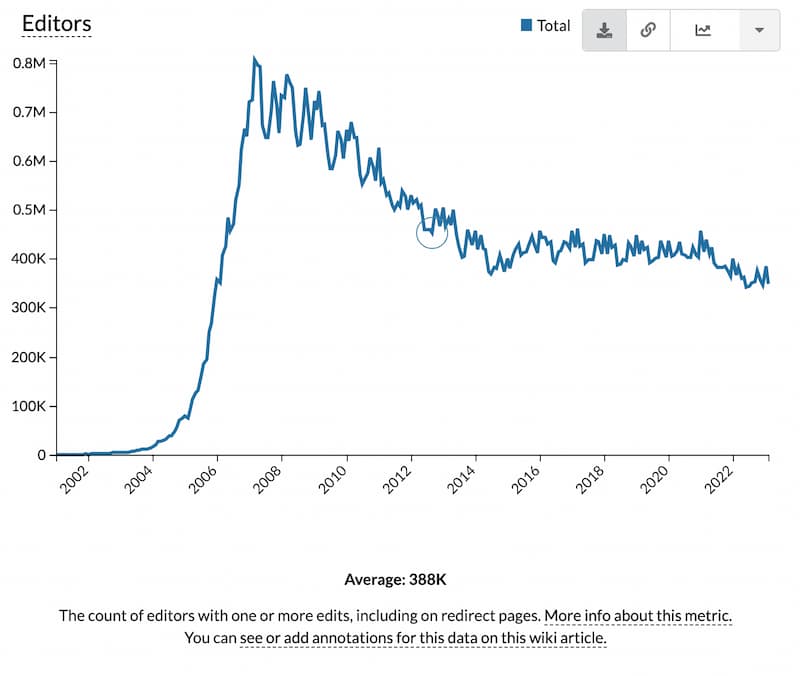This is an uninspiring list of sources whose reliability and their use of Wikipedia are frequently debated. The list provides a summary of the previous consensus. Also, it includes hyperlinks to the most thorough and current discussions on the trusted sources list board and other places on Wikipedia.
Consider the context, as specific sources might or might not be appropriate for use in certain situations based on the circumstances. If in doubt, refer to the discussion link for more detailed information about the source you are considering and its application. There is a possibility that consensus may change. If discussions considering new evidence or arguments arrive at an alternative consensus, this list must be updated to reflect the developments.
What is it that makes Wikipedia such a reliable source?
Teachers often point out that anyone, not only specialists in the field, can modify any Wikipedia page. This doesn’t necessarily make Wikipedia’s data insecure. It’s nearly impossible for conspiracies to stay publicized in Wikipedia.
Find out more: About working as a Wikipedian at residence’
In the case of popular articles, the Wikipedia active community of volunteer admins, bots, and administrators ensures that edits are made based on solid citation sources. The most popular articles are read many times. Certain media professionals, including Amy Bruckman, a professor at the Georgia Institute for Technology’s computer centre, assert that due to this laborious procedure, an article that has been thoroughly edited and posted on Wikipedia could be the most trustworthy source of data ever made.
Are the contents from Wikipedia needed?
Some teachers believe the content on Wikipedia needs to be more sufficient, especially for students in tertiary. The argument is that all fact-checking should be an intense process. However, there are better methods for starting an investigation on a subject. The research must be conducted after the authenticity of the source is confirmed.
Some educators are sceptical that students must be taught to judge the information quickly. Looking up the broad capabilities of the Australian Curriculum will show that “critical and creative thinking” encourages deep, comprehensive reflection. Education professionals who confuse “critical” and “media” knowledge may think that online material analysis is slow and thorough.
Who is the owner of Wikipedia?

Larry Sanger and Jimmy Wales created Wikipedia on the 15th of January 2001. By mid-2003, Wales created his organization, the Wikimedia Foundation (WMF), which is a 501(c)(3) nonprofit organization that is currently the owner of Wikipedia. Wales is a Wikimedia Foundation’s Board of Trustees member and was chairman between 2003 and 2006.
The Wikimedia Foundation is headquartered in San Francisco and is supported through grants and donations. The nonprofit organization aims “to bring free knowledge to everyone.”
Is Britannica a more reliable source?
Britannica is considered to be a superior source over Wikipedia, particularly when it comes to providing facts and figures. It is because specialists within the field create Britannica content, while any person could create Wikipedia content.
Britannica has a strict editing process and checks each article to ensure accuracy and completeness before publication.
The battle between Wikipedia and Britannica has been ongoing for ages and has been the focus of numerous studies. A study showed that, in most cases, Wikipedia was more left-leaning than Britannica.
When to use it
Wikipedia’s tertiary character Wikipedia (and it’s not open access) is the most crucial reason you should utilize it as a source other than the sole source. However, there’s a time and place to use Wikipedia.
You have recently been assigned to write about the past, the structure of the structure, its impact, and more for The Associated Press. It is evident that near the bottom of the Wikipedia entry for the Associated Press’s article is an area titled “References.” This section contains many vital links and citations, for instance, two books printed by university presses. Suppose you’re looking for trustworthy secondary sources for information about the AP publication. In that case, reference these sources in the References section instead of the Wikipedia article.
The AP report shows that footnoted numbers precede many paragraphs, sentences, sections and paragraphs. The numbers direct readers to specific resources listed within the “References” section at the beginning of the text. The footnotes are beneficial if you must find a particular detail and where exactly (e.g. page number or chapter, website) the information originated. Also, Wikipedia can be very beneficial in helping you find your “right direction” while you research.
An important note for all this is that it is possible that certain sections of Wikipedia content need to include footnotes to support their claims. Although the data found in these pages could be correct, the fact that they don’t have footnotes could signal that their assertions ought to be considered with a grain of to the contrary or wholly ignored. If you’re on Wikipedia and similar sites, it’s best to look for references, not claims that lack attribution.
Summary
One of the most critical aspects of using Wikipedia as a research tool is knowing whether the sources and information you find in the article are trustworthy. Even though Wikipedia demands that all information meet a specific quality (not to mention that experienced Wikipedia editors usually do to eliminate negative information from the website), Subpar or questionable sources are often present in a number of articles.